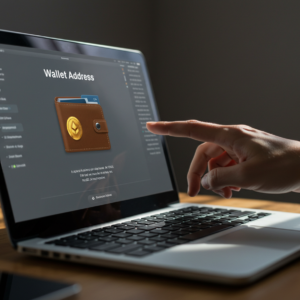This article may contain references to products or services from one or more of our advertisers or partners. We may receive compensation when you click on links to those products or services. Nonetheless, our opinions are our own.
The information presented in this article is accurate to the best of our knowledge at the time of publication. However, information is subject to change, and no guarantees are made about the continued accuracy or completeness of this content after its publication date.
Highlights
- Cash bonds are a stable way to invest, especially when the bond market is good.
- If interest rates are about to drop, putting money into bonds instead of cash can lead to better returns. In the past, bonds have earned more than cash in these situations.
- A mixed bond collection can balance risk and returns. This can help manage changes in the market while also allowing for growth opportunities.
- It is important to look at your money goals and how much risk you can take before making investment choices.
- Bonds might have benefits, but what happened in the past doesn’t mean it will happen again. It is a good idea to get advice from a professional.
Introduction
The bond market can be tough. Changes in interest rates directly impact bond yields. This makes timing and strategy very important. Many investors look at the safety of cash and the growth of bonds, especially when the economy changes.
Voted "Best Overall Budgeting App" by Forbes and WSJ
Monarch Money helps you budget, track spending, set goals, and plan your financial future—all in one app.
Get 50% OFF your first year with code MONARCHVIP
Understanding Cash Bonds and Their Role in Finance
Balancing risk and return is the trick in managing money. Cash bonds are a stable investment that can help with different money goals. This will depend on how you use them in a bigger plan.
What are cash bonds?
Cash bonds are types of investments where you lend money to someone, usually a government or a company. When you buy a bond, you give them money for several years. In return, you receive regular interest payments and your original amount back when the bond expires.
Common types include Treasury bills, bonds, and mutual funds. Mutual funds gather money from several investors to create a varied bond fund.
Choosing the right kind of bond depends on your money goals, how long you plan to invest, and how much risk you can handle.
How do cash bonds work?
Cash bond performance is closely linked to interest rates. When interest rates go up, the prices of existing bonds usually go down, and the other way around. Knowing this opposite relationship is important for bond investing.
Bond indices, like the Bloomberg Global Bond Index, follow how the market is doing and show bigger trends. Looking at yield curves, which are graphs showing interest rates for various bond lengths, can help investors guess what the market might do with rates in the future.
Knowing how your bonds react to changes in interest rates helps you make better investment choices.
Using Money from Cash Bonds
Knowing when to take money from your cash bonds needs careful planning. It’s not only about having money ready, it’s about matching withdrawals with your needs and the market situation.
Here’s how to approach this process.
Considerations before cashing in bonds
Before you cash in your bonds, check your money situation and know the details of your investment. Look at the bond’s maturity date, interest rate, and any fees if you take it out early.
Think about risks like credit risk (the chance that the borrower could not pay) and interest rate risk (losing value if interest rates go up and you sell before it’s due).
It’s important to think about how using the bond fits with your larger money goals. Would getting this money now help you with a specific need, or are there other ways that might give you better results?
How to access funds from your bonds
Accessing money from cash bonds is usually easy. This is especially true when the bonds are held with trusted institutions or government platforms.
Contact your broker or bank
If you bought bonds from a broker or a bank, contact them directly. They will help you with the process to get your money back and tell you what papers you need.
Use online platforms
If you own bonds through sites like TreasuryDirect, you can manage your account online. You can start the process to get your money back and keep an eye on what you own.
Understand tax implications
Be aware of possible tax responsibilities, like capital gains tax, if you sell bonds for more than you paid for them. Talk to a tax advisor to understand how cashing in bonds impacts your tax situation.
Step 1: Evaluate Your Financial Goals
Before you decide to use money from bonds, think about your goals. Are you saving for a house, retirement, or school? Knowing your short-term and long-term plans will help you see if cashing in your bonds now matches what you need.
Timing is important. When will you need to get the money? Aligning your investment choices with your expected cash needs helps make sure you don’t hurt future goals just for quick access now.
Lastly, think about your risk level. Are you okay with changes in the value of your investment, or do you like steady and reliable returns? Your answers will help you find the best way to access bond funds.
Step 2: Look at the Current Conditions of the Bond Market
Knowing the bond market now helps you decide when to cash in your investments.
Look at factors such as:
- Trends in interest rates and what to expect in the future
- Current returns on bonds
- Credit ratings and risks, especially for company bonds
- Changes in the yield curve
- Market signs from groups like the Federal Reserve
Staying up to date with these signs will help you think about the risks and benefits. This way, you can avoid making decisions based on impulse or guessing.
Conclusion
Deciding when to use money from your cash bonds requires some planning and understanding of the market. You should match your bond choices with your goals. Also, look at the interest rates. This way, you can make better, smarter choices.
Whether you are a new or an experienced investor, cash bonds are important for a good plan with money. Keep yourself updated, check your goals often, and talk with money experts when needed to get the best out of your bond investments.
Frequently Asked Questions
What is the best time to begin using money from cash bonds?
The best time usually matches with expected drops in interest rates. When rates go down, bond prices usually go up. This can create a chance to make profits. Keep an eye on rate forecasts and market changes. This will help you choose if it’s a good time to act.
How can cash bonds affect your long-term money planning?
Cash bonds can provide a stable way to earn money through regular interest payments. They help keep your money safe when you keep them until they mature. Bonds can also help mix your investments, especially in tough economic times. However, it is important to think about your whole money plan. This includes your need for quick access to cash and your comfort with risk when you add bonds.
Can I lose money with cash bonds?
Yes, it’s possible. While cash bonds are generally considered safer than stocks, they still carry risks. If you sell a bond before its maturity date during a period of rising interest rates, the market value of your bond may be lower than what you originally paid. Additionally, corporate bonds carry the risk of issuer default, especially if the credit quality is low.
Should I reinvest the money after cashing in my bonds?
Reinvesting can be a smart strategy if the funds aren’t needed immediately. Depending on your financial goals, you might consider reallocating to new bonds, savings accounts, or other investment vehicles. Reinvestment helps maintain the momentum of your financial growth while keeping your money actively working toward your goals.

Reviewed and edited by Albert Fang.
See a typo or want to suggest an edit/revision to the content? Use the contact us form to provide feedback.
At FangWallet, we value editorial integrity and open collaboration in curating quality content for readers to enjoy. Much appreciated for the assist.
Did you like our article and find it insightful? We encourage sharing the article link with family and friends to benefit as well - better yet, sharing on social media. Thank you for the support! 🍉
Article Title: When Is The Best Time To Start Using Money From Your Cash Bonds?
https://fangwallet.com/2025/09/13/when-is-the-best-time-to-start-using-money-from-your-cash-bonds/The FangWallet Promise
FangWallet is an editorially independent resource - founded on breaking down challenging financial concepts for anyone to understand since 2014. While we adhere to editorial integrity, note that this post may contain references to products from our partners.
The FangWallet promise is always to have your best interest in mind and be transparent and honest about the financial picture.
Become an Insider

Subscribe to get a free daily budget planner printable to help get your money on track!
Make passive money the right way. No spam.
Editorial Disclaimer: The editorial content on this page is not provided by any of the companies mentioned. The opinions expressed here are the author's alone.
The content of this website is for informational purposes only and does not represent investment advice, or an offer or solicitation to buy or sell any security, investment, or product. Investors are encouraged to do their own due diligence, and, if necessary, consult professional advising before making any investment decisions. Investing involves a high degree of risk, and financial losses may occur including the potential loss of principal.
Source Citation References:
+ Inspo
There are no additional citations or references to note for this article at this time.












































